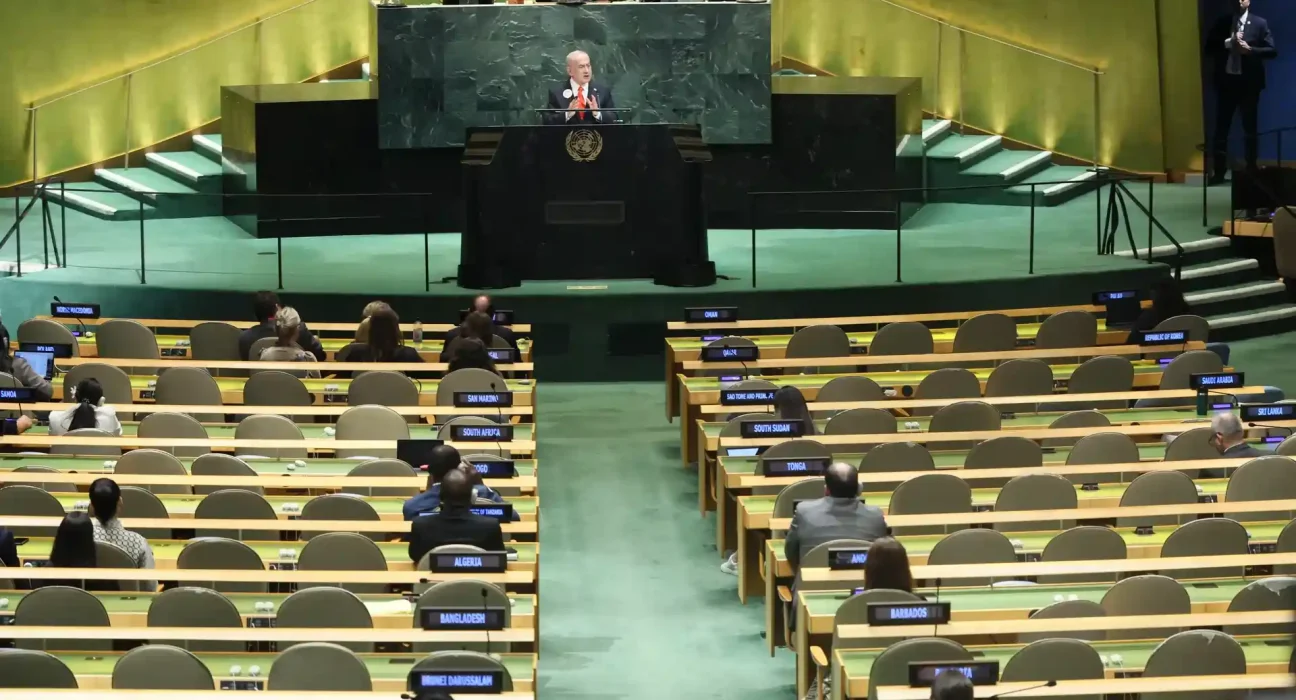Mass Walkouts at UN During Netanyahu Speech
Hundreds of delegates staged mass walkouts at UN during Netanyahu speech to protest Israel’s war policies in Gaza. As Prime Minister Benjamin Netanyahu entered the UN General Assembly, dozens of diplomats stood up and exited.
The walkout highlighted deep divisions within the international community over Israel’s conduct. Many UN members have recently moved to recognize Palestine — a step Netanyahu sharply criticized.
Netanyahu’s UN Address Stirs Diplomatic Rebellion
Netanyahu used his address to demand Israel will “finish the job” in Gaza. He called recent Palestinian state recognition “sheer madness.” He also likened granting sovereignty near Jerusalem to giving al-Qaeda a state near New York.
Before his remarks, delegates from more than 50 countries exited. Over 100 diplomats walked out in protest. Many observers say the hall was nearly empty by the time he spoke.
International Responses & Repercussions
The walkouts reflect mounting international frustration with Israel’s Gaza operations. Several nations, including the UK, France, Canada, and Australia, have broken from U.S. policy by recognizing Palestine. Delegates from many Arab and Muslim countries joined the protest.
Critics argue Netanyahu’s speech lacked reference to possible diplomatic solutions. He avoided mentioning West Bank annexation — a contentious topic. Some nations may reassess their diplomatic alignment with Israel.
Symbolism & Strategic Messaging
Spokespeople described the walkouts as a diplomatic rebuke. The event signaled that many nations will not tolerate unilateral military escalation. Netanyahu’s use of hyperbolic rhetoric intensified criticism of his approach. The nearly empty hall underscored Israel’s increasing isolation.
Impact on Gaza & Global Diplomacy
Netanyahu’s vow to continue the military campaign in Gaza drew fierce condemnation. The conflict has left Gaza’s infrastructure devastated and its civilians suffering a humanitarian catastrophe. Some human rights groups have labeled Israeli actions as war crimes.
The walkouts may accelerate international pressure on Israel. Calls for ceasefires, accountability, and renewed peace negotiations grow louder. The incident may influence votes, alliances, and UN resolutions in coming days.
What Comes Next
Expect heightened scrutiny of Israel’s next diplomatic moves. Many countries will watch for policy changes or concessions. Analysts believe UN deliberations will intensify on Gaza, Palestine recognition, and wartime accountability.
The mass walkouts may set a precedent for future UN assemblies. It could embolden more members to exit during controversial speeches.
Meanwhile, Israel may reinforce its narrative externally rather than through traditional diplomacy. Netanyahu’s strategy appears to rely on strong messaging over multilateral compromise.







